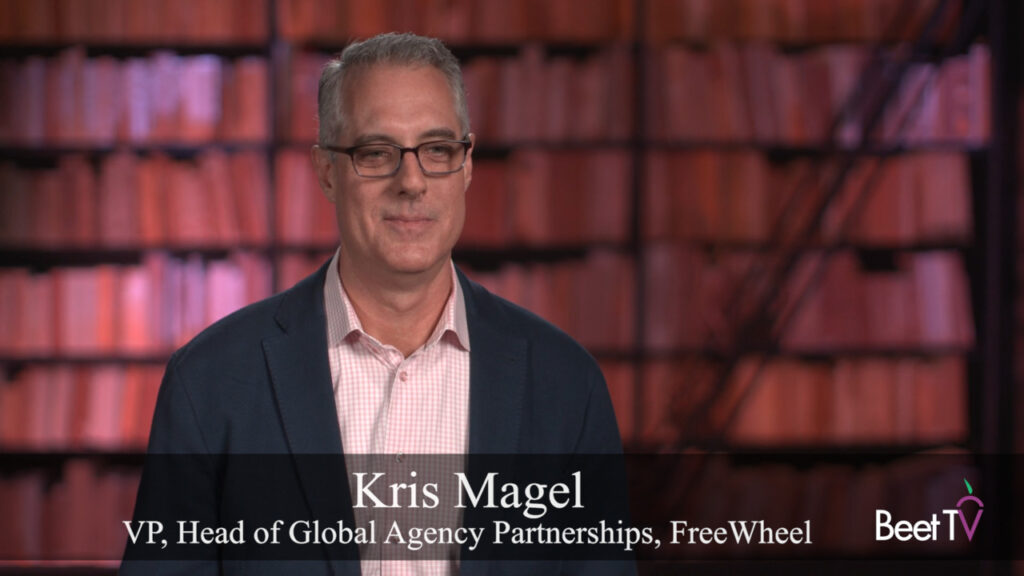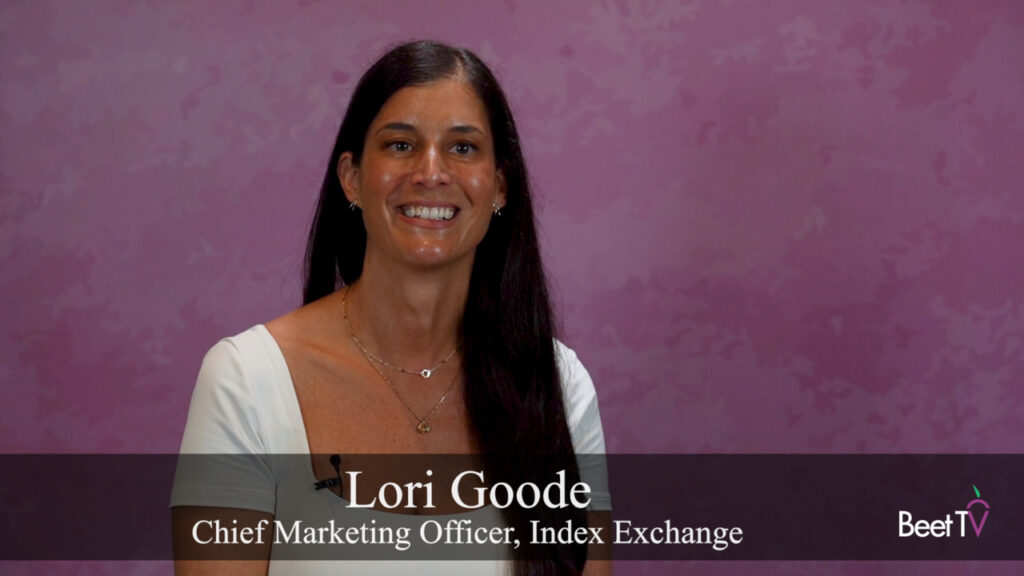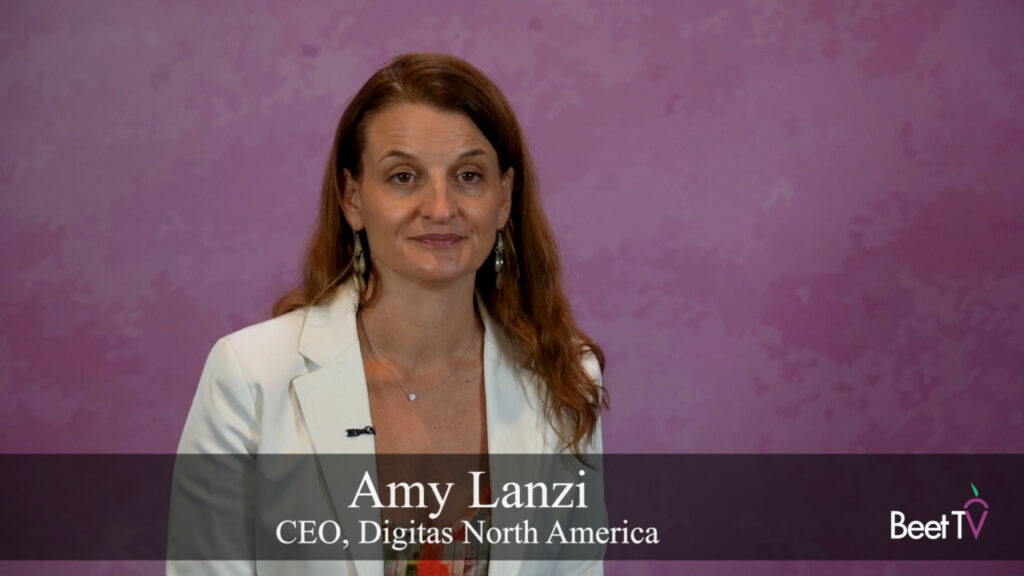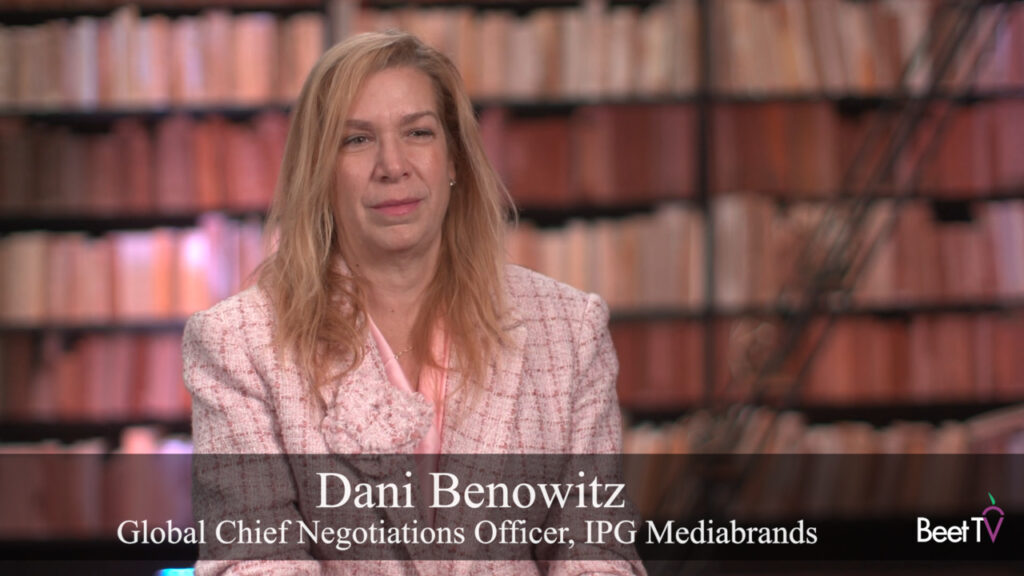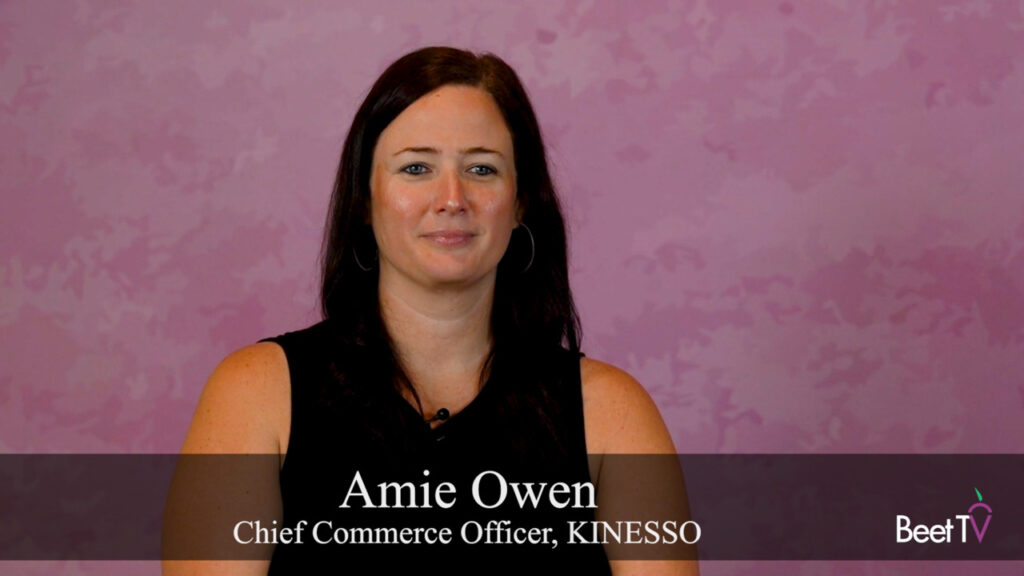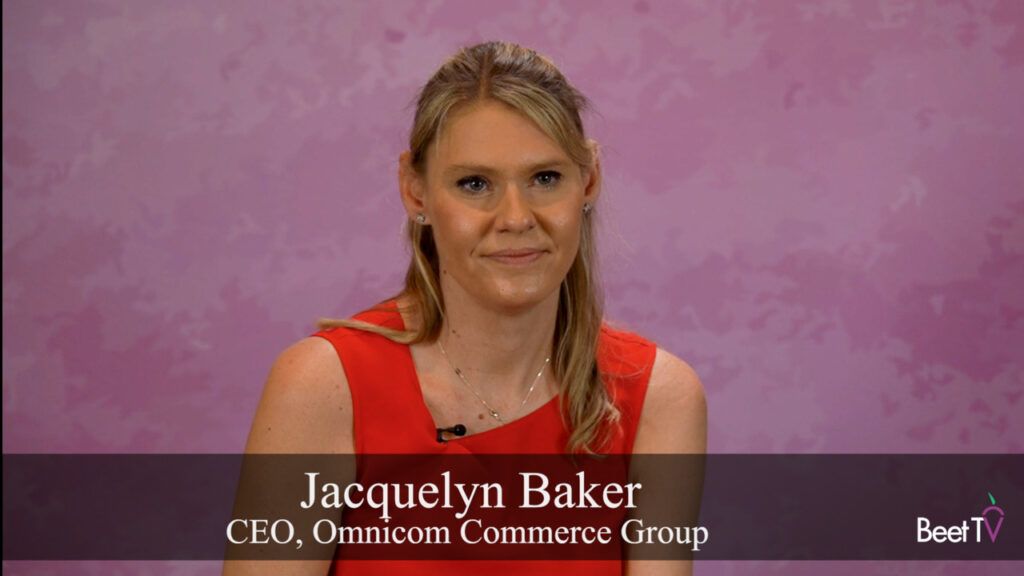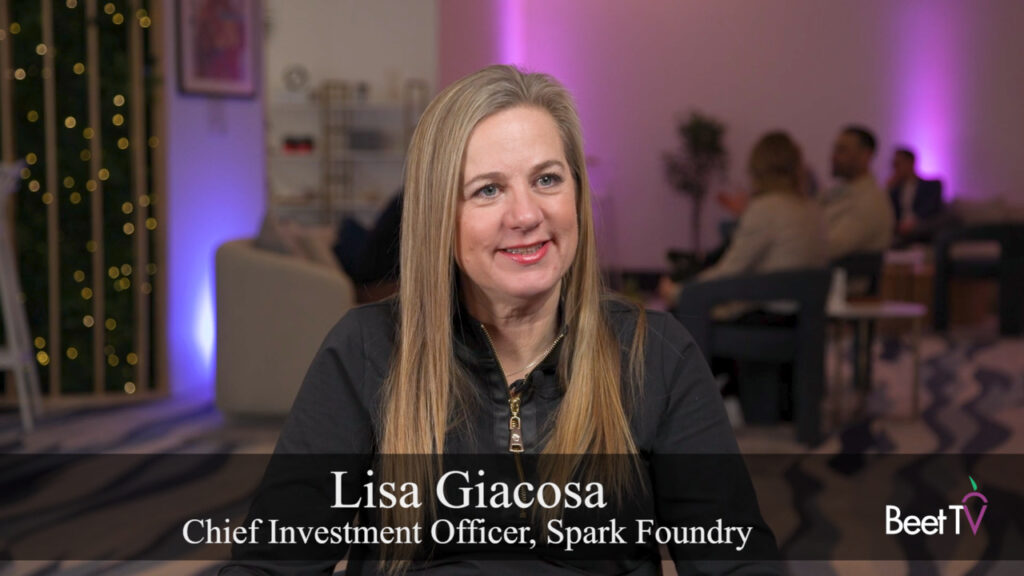Are TV viewers really watching the screen anymore, or do they have their phones in their hands?
This is the question facing TV manufacturers. But, if viewers are shopping for the things they’re seeing on screen, that may be a win for TV companies.
Ty Cooper, founder and CEO at The Take, which provides shoppable television technology, believes the current way that viewers go from TV screen to mobile shopping is set for an overhaul.
Shopping in real-time
“The challenge with QR codes is that they’re ugly, and they’re ephemeral,” Cooper said, In this video interview with Beet.TV editorial director Lisa Granatstein.
“So they’re really only on screen for a short amount of time, hopefully, which means that a user only has a short amount of time to engage with that QR code and shop whatever the program is.”
The Take has created a way to integrate its technology into televisions, to be part of the operating system and allow viewers a better shoppable experience. “We can drive really beautiful notifications that are sponsored and say, ‘Shop this particular item the moment that it appears on screen’.”
Building a robust platform
If someone sees a cool pair of sneakers, Cooper said, they can shop them right at the moment. The Take has partnered with LG and Samsung, which Cooper says covers about 59% of the connected TV market in the US. This “gives us great partners, beautiful devices, beautiful experience, and also tremendous scale.”
Cooper sees 2025 as a pivotal year for this type of technology, when he says “shoppable TV goes beyond the QR code and actually scales up as a really rich experience.”
Because the company integrates its technology deeply into the TVs’ operating systems, “we allow for this robust experience that allows the consumer to grab their remote and engage whenever they want, shop the moment they’re interested in shopping, and then go back to watching the content,” he said.
Thirty-eight percent of people in the US scan QR codes at least once per year, not specific to TV applications, Emarketer said in February 2024.



























